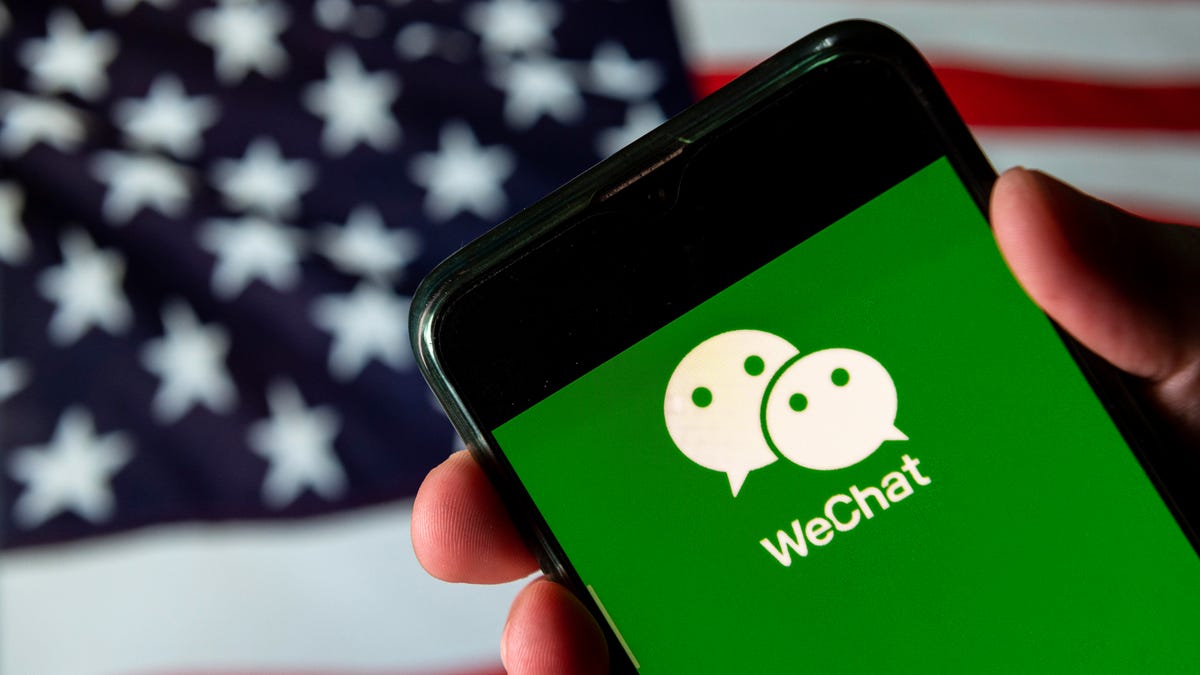WeChat ban: Apple, Disney, others reportedly push back on call with White House
US companies are nervous about government-imposed limits on use of the popular Chinese app, according to The Wall Street Journal.

WeChat could disappear from US-based app stores and phones.
Disney, Apple, Walmart and nearly a dozen other companies called the White House on Tuesday, according to The Wall Street Journal. Their goals, according to the report, were to get more clarity on President Donald Trump's executive order banning "any transaction that is related to WeChat" and to encourage the administration to "narrow the order as it is implemented over the coming weeks," per anonymous sources.
Trump's executive order on Aug. 6 targeted social media app TikTok and messaging app WeChat -- both of which are based in China. "The spread in the United States of mobile applications developed and owned by companies in the People's Republic of China continues to threaten the national security, foreign policy, and economy of the United States," the executive order reads.
But analysts have warned of the particular risk of a WeChat ban to American businesses. WeChat, owned by China-based TenCent, is one of the most popular messaging apps in the world, boasting well over a billion users worldwide, the majority of whom live in China. Experts warn that a WeChat ban could seriously limit the ability of US companies to compete at their current level in Chinese markets. Apple iPhone sales, for instance, could drop 30% worldwide if the ban forces Apple's App Store to drop WeChat, according to one Apple analyst.
A TenCent spokesperson said the company is "reviewing the executive order to get a full understanding."
Others on the call, according to the report, were representatives from Ford, Proctor & Gamble, MetLife, Intel, Goldman Sachs, Morgan Stanley, United Parcel Service, Merck & Co. and Cargill.
Disney, Apple and the White House didn't immediately respond to requests for comment.

